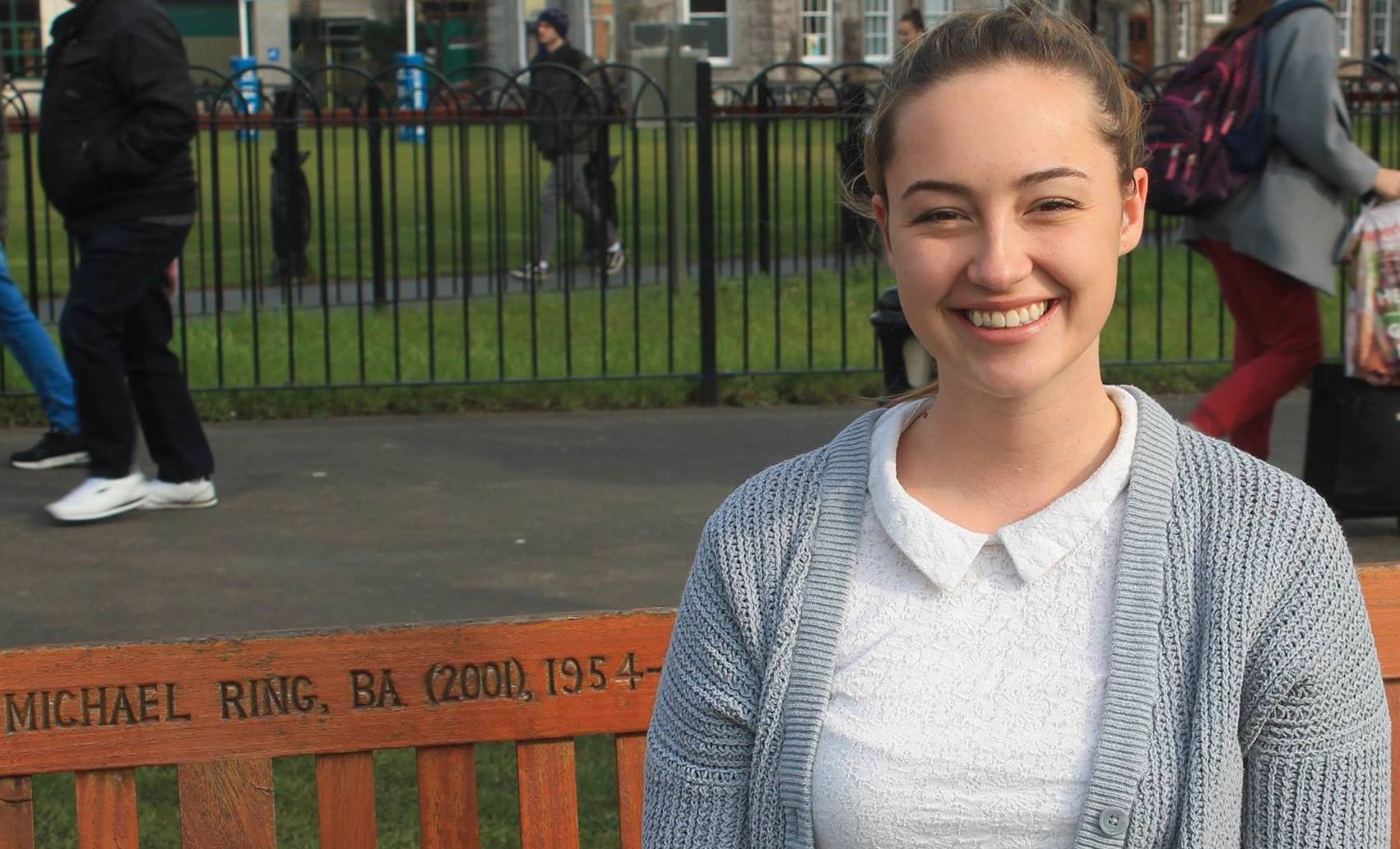In light of the success of the Fossil Free campaign at Trinity, which led to Trinity divesting from fossil fuels on campus, environmentally friendly societies such as EnviroSoc have been thrust into an unfamiliar spotlight.
This year’s Chair is Izzy Jorgensen, an environmental science student from America who summarises her rise from an Ordinary Committee Member (OCM) last year to her position this year as “quite a quick one.” Although evidently passionate about the environment, Jorgensen claims she was hesitant when it came to joining EnviroSoc during Freshers’ Week.
“When I first saw the stand, I thought, I’m not joining that, its a load of tree huggers. However, I found it’s really not like that at all. In EnviroSoc, you have a place where people who are passionate about the environment, but not as comfortable with the activism associated with campaigns such as Fossil Free, can collaborate.”
Jorgensen’s role as Chair of a society at the heart of such an important movement is a fascinating one, made no less fascinating by the Central Societies Committee’s (CSC) political policy. This policy makes it impossible for student societies to become political campaigns. However, this has not proven to be a barrier to EnviroSoc. In fact, quite the opposite.
“While we can never be a full blown campaign due to CSC, this doesn’t really stop us as the issues we are concerned with aren’t that controversial in Ireland. In fact, it is quite a helpful policy. For us, it means that people of all political backgrounds feel comfortable taking part in environmental activism. In the States however, this might be a little different!”
This difference can ultimately be accredited to President Donald Trump’s controversial views on climate change and environmental problems, claiming they are nothing but a “Chinese creation to make US manufacturing non-competitive”. Interestingly, though acknowledging the potential harm of this rhetoric, EnviroSoc does not view Trump’s words as a barrier to a greener environment, but a catalyst for more awareness concerning climate change and various environmental issues.
“When Trump talks, people listen. A lot of people have decided that because, what he is saying is so ridiculous, they want to be a force of change on the opposite side.”
Their positive view, as demonstrated by their approach to the Trump dilemma, is central to the work of EnviroSoc. When speaking about the Fossil Free campaign, Jorgensen noted that this was a victory which was far more significant. It also empowered the “Not Here Not Anywhere” movement, which led to Ireland divesting its National Trust from fossil fuels. It is perhaps this level of untapped subliminal influence that is most impressive about the society, with Jorgensen aptly stating that: “We are just down the road from the Dáil. They are considering banning plastics because we are. That is the kind of influence we have as Trinity students.”
While optimism is certainly a key component of the society, their main goal is far more tangible. That is, “to get people on campus involved in issues they may not have realised they held any agency in”. It is clear that Jorgensen aims to create an inclusive society, evident in her plans to host various career speakers of different backgrounds. These include lawyers, economists, and climate change sceptics alike. “Even if you feel you or your degree doesn’t match up with environmental activism, you can make it match up if you care enough.”
While such stewardship is undoubtedly uplifting, the reality of environmentalism in Trinity is not as encouraging. It is clear in daily life on campus that there are shocking offences to the environment, all of which could be easily avoided. For example, Jorgensen condemns practices such as Campaign Week and “paper copy assignments” as extremely damaging to the world at large.
“It’s not like we have to do this weird paper copy hand in thing. It’s wasteful and extremely damaging to the environment. Also, during Campaign Week, you will see 1,000 flyers and papers on the ground. It’s expensive, it’s unnecessary, and nobody wants that. We could buy microwaves with that money!”
However, in acknowledging the current failings of College when it comes to protecting the environment, EnviroSoc claims that change can be quite simple, and the potential for improvement is self-evident. Perhaps most encouraging is the society’s own admittance that a “minimalist approach to life simply isn’t going to work”.
As has been seen by wide scale aversion to recyclable straws in restaurants and bars across Ireland, it is noted that companies such as Stojoe, which make collapsible coffee cups, and EcoQuit, who specialise in environmentally friendly glitter among other things, go a long way towards making environmentalism a default way of living.
EnviroSoc’s role on campus is merely to catalyse that process, by providing promotion during Freshers’ Week, and a “place where activists can find support”. Because, at the end of the day, “people going to Electric Picnic will always want their glitter!”
It is clear that EnviroSoc’s attempts to sell a more environmentally friendly lifestyle span far outside the Trinity campus. In discussing Dublin as a whole, Jorgensen claims that adopting bicycles as a primary form of transport would both suit our narrow roads and be extremely beneficial for the environment as a whole. Furthermore, her closing message is similarly thought provoking: “The one thing I would say is, take a minute to self-reflect, decide what not only is important to you, but what you can contribute realistically.”
From speaking with Jorgensen, it is clear that EnviroSoc has a big year ahead. The society’s core goal to promote environmentalism as a default lifestyle and to facilitate activists from all walks of life is undoubtedly uplifting. Indeed, given Jorgensen’s plans and EnviroSoc’s mission statement, this society is sure to play an influential role on campus in the not too distant future, as they have done before.






